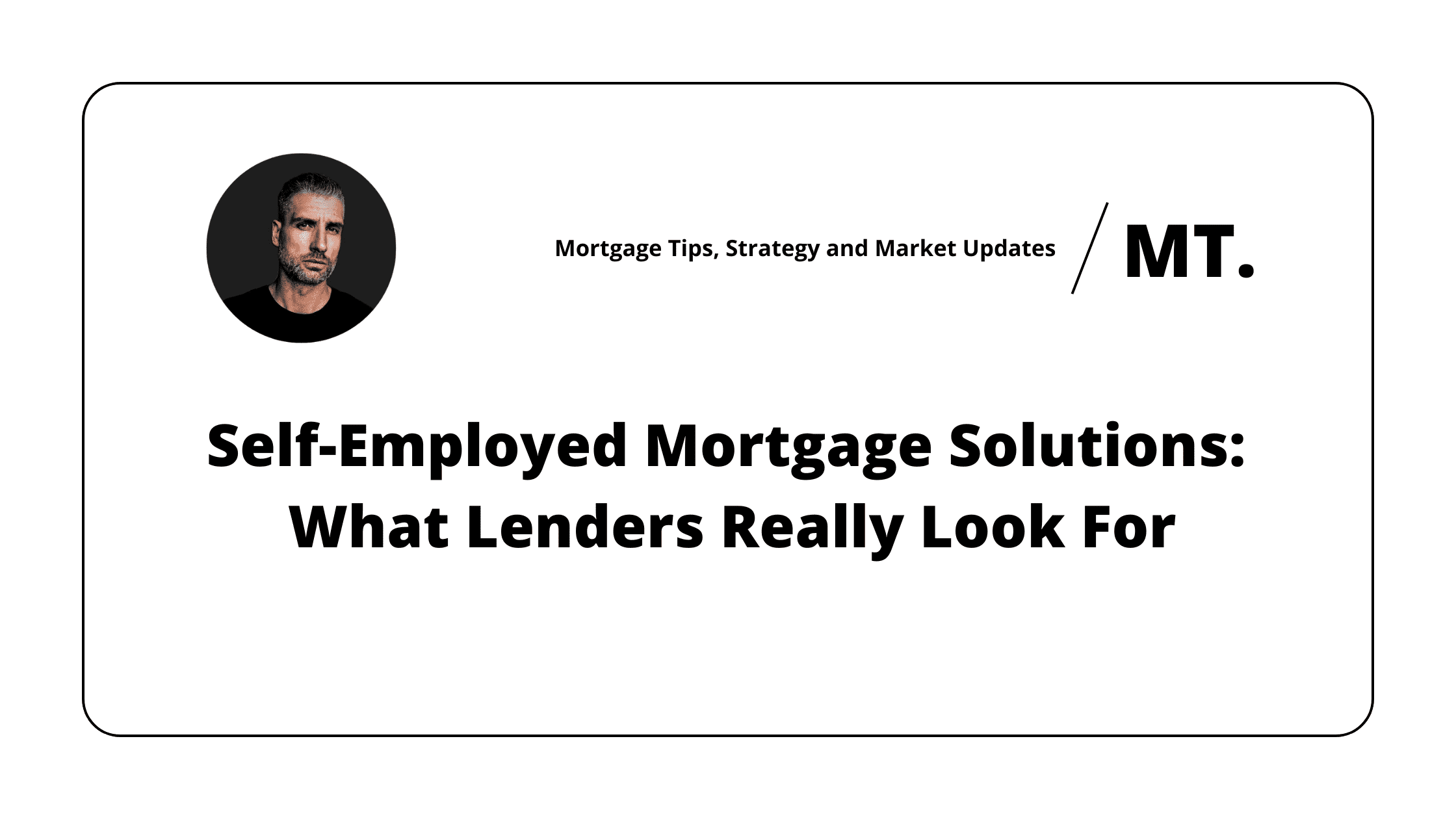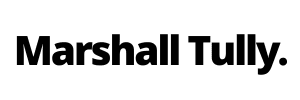Read Time: 4 Minutes
Self-Employed Mortgage Solutions: What Lenders Really Look For
As a self-employed individual, securing a mortgage in Canada can feel like a daunting task.
Without traditional pay stubs or employer verification, the process may seem more complex, but don’t worry—lenders understand these challenges.
In fact, there are many solutions tailored to meet the needs of self-employed Canadians.
Now, let’s dive in!
What is a Self-Employed Mortgage?
A self-employed mortgage is designed for individuals whose income comes from their own business or freelancing work rather than traditional employment.
Lenders evaluate your income differently, often considering net income after expenses, business revenue, or dividends/salary paid to you by your company.
Common types of self-employment include:
- Sole proprietorships
- Partnerships
- Corporations (owner-operators)
For context, reference the CRA’s full guidelines on self-employment, visit What does the CRA consider self-employed.
Challenges of Getting a Mortgage When Self-Employed
Self-employed individuals face unique hurdles in mortgage qualification, due to:
- Income Variability: Lenders are looking for consistency over multiple years, so fluctuating income changes in earnings, tax strategy, or expenses can make it harder to qualify.
- Tax Deductions: While deductions reduce taxable income, and your tax bill, they may also lower the income lenders use to assess your application.
- Stricter Documentation Requirements: Lenders often ask for personal tax returns, business statements, and other proof of income.
To learn more, visit our guide to self-employed mortgages in Canada.
How to Get a Mortgage When Self-Employed
Here’s what lenders typically look for:
- Proof of Income:
Lenders will require you to demonstrate your personal and business earnings, by way of:
- Tax Returns: Notices of Assessment and T1 Generals (2 years)
- Business financial statements (2 years)
- Bank account records showing regular deposits (12 Months)
- Down Payment:
Standard down payments range from 5–20%, but self-employed borrowers may need to provide more, which can unlock more options, including better rates or approval amounts.
- Credit Score:
Aim for a credit score of 680 or higher. However, borrowers with scores below 680 can still find many options, particularly with B or private lenders.
- Debt Ratios:
Lenders will be looking very closely at what income you have coming in personally, as well as any debts or financial responsibilities you are committed to. This is how they will determine what capacity you have to add to additional housing costs (mortgage, property taxes, etc.), in other words; what they are willing to lend you. Keeping your debt to a minimum, will help improve your chances of approval.
Check out our tips on how entrepreneurs can secure a mortgage.
Mortgage Options for the Self-Employed
Several lenders and programs cater to self-employed borrowers:
A Lenders (Banks, Credit Unions, and Mortgage Companies):
Offer competitive rates but have stricter income verification requirements. They will typically look only at what is stated on your personal tax returns to determine income.
B Lenders:
Offer more flexibility with income verification and typically charge fees of 2% of the borrowing amount. Rates are generally the same or slightly higher than A lenders. They will dig deeper into your business, and care less about what you’re reporting as personal income on your tax returns. This difference can really have a major impact on the amount you’re able to borrow as an entrepreneur.
Private Lenders:
Ideal for borrowers with extreme circumstances, such as brand-new business owners with no income track record. Fees are typically 3–4% of the borrowing amount, and interest rates are the highest you will find.
CMHC Self-Employed Program:
Works well for borrowers who have moved from being employees to billing as independent contractors within the past 18 months. Allows insured mortgages (less than 20% down payment) for verified self-employment income.
For more tailored options, explore our stated income mortgage guide.
Benefits of a Self-Employed Mortgage
Despite the challenges, there are benefits to a self-employed mortgage:
Flexible Income Verification
The diversity of options available to self-employed borrowers gives you back control on how you report your income, optimizing for taxes and mortgage qualification.
An advance strategy calls for coordination between your accountant and mortgage broker well in advance of applying for a mortgage.
Higher Loan Amounts
By using the unique options available, I’ve been able to consistently get clients approved for larger amounts than their taxable income would allow for.
Tax Savings
With the right strategy, and mortgage solution, you can optimize between borrowing costs and income tax to maximize your savings – and retain more money in your pocket.
Documentation Required for Self-Employed Mortgages
To prepare for your application, gather the following:
-
- Notices of Assessment and T1 Generals for the last 2–3 years
- 12 months business operating account Bank statements
- Articles of incorporation (if applicable)
- 2 Years Corporate Financial Statements (if applicable)
- Business license or GST/HST registration number
FAQs About Self-Employed Mortgages
How do I prove income for a self-employed mortgage in Canada?
Depending on the lending program, you’ll need to provide Notices of Assessment, T1 Generals, financial statements, and/or business bank statements to demonstrate income.
What is the best mortgage option for self-employed people?
Depending on your needs, stated income or insured CMHC mortgages can offer the biggest impact compared to traditional lending options.
Can I get a mortgage with low reported income?
Yes, but it may require a larger down payment or working with a private lender. Every situation is unique.
Securing a mortgage when self-employed may require extra steps, but with the right preparation, it’s entirely possible.
Understanding the documentation required, and working with the right mortgage broker can make the process seamless.
Self-employed and need a mortgage?
Contact me today to discuss how I help you build a borrowing strategy that can save you money on your taxes and mortgage!
Overview
Subscribe to begin.
Join 7.5k+ subscribers and get tips, strategies and market updates every other Thursday morning.







